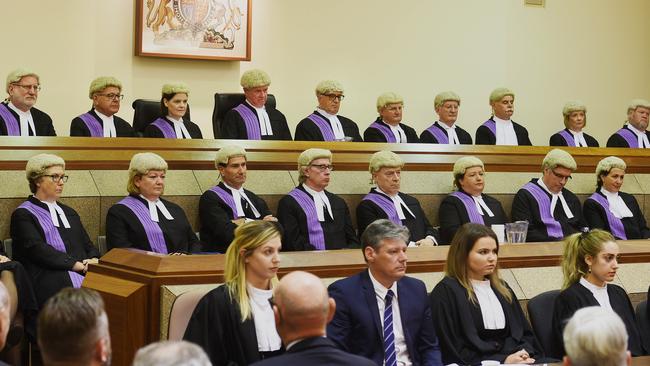South Australian judges no longer forced to drive Holden cars after complaints, Adelaide tribunal rules
THE state’s judiciary will no longer be forced to drive certain Holden cars as part of their lucrative salary packages after complaints of being inadequate for their workload, a tribunal has ruled.
SA News
Don't miss out on the headlines from SA News. Followed categories will be added to My News.
THE state’s judiciary will no longer be forced to drive specific Holden cars as part of their lucrative salary packages after complaints of being inadequate for their workload, a tribunal has ruled.
South Australia’s Remuneration Tribunal has relaxed rules on judges, magistrates and other legal officers’ taxpayer-funded vehicle leases after Holden ceased production in Adelaide’s north last month. Instead, they can now choose to drive models including Toyotas, Fords, Nissan, Hyundai and Mitsubishi sedans, wagons or SUVs.
There is no change to the annual amount put towards car leases — known as the “conveyance allowance” — which range from between $15,298 and $17,541. Judges will next year earn between $307,160 and $493,900.
The ruling affects those sitting on the Supreme, District, Environment, Development and Resource and Magistrate and Coronial benches as well as the state’s employment tribunal.
Auditor-General Andrew Richardson, Electoral Commissioner Mick Sherry, his deputy, David Gully and health complaints body chief Steve Tully are also affected.

The independent tribunal’s ruling came after judicial complaints luxury Holden Calais and Commodore Evoke Sedans were “not an adequate selection”.
A judiciary committee had argued the cars were not helpful in duties including not being able to accommodate files, luggage and other Courts Administration Authority officers during travel to regional courts.
Under state rules, the judiciary could select a different vehicle in “limited circumstances”, which then had to be publicly approved by the tribunal.
The State Government, on authorisation from Premier Jay Weatherill, had argued the list was “adequate selection” and was similar to those provided by Fleet SA to public sector executives.
But in its ruling, published online last month andformally in the Government Gazette, the tribunal revealed it was relaxing the rules. It agreed with the premier’s submission, made by the state’s Crown Solicitor’s Office, that changes could be made because vehicle production has ceased in South Australia. “The history of the conveyance allowance … has featured a significant public policy concern to support local vehicle production in South Australia,” it said.
A Judicial Remuneration Coordination Committee spokeswoman said it supported the “independent determination”. Treasurer Tom Koutsantonis said the Government had “long-supported Holden and its South Australian workforce through its procurement practices”. “While this is a matter for the independent Remuneration Tribunal, Holden vehicles are no longer manufactured in South Australia so it is sensible to reassess the available vehicles,” he said.
Judiciary pay varies from Chief Justice Chris Kourakis, who will earn $493,900 from New Year’s Day next year — an $11,310 pay rise — to $307,160 for our 32 magistrates — up from $300,130 this year.
District Court Chief Judge Michael Evans and the state’s 11 Supreme Court justices will each earn $441,010 next year after receiving a $10,100 pay rise. The state’s 22 District Court Judges will earn $389,450 next year up from $380,530.



